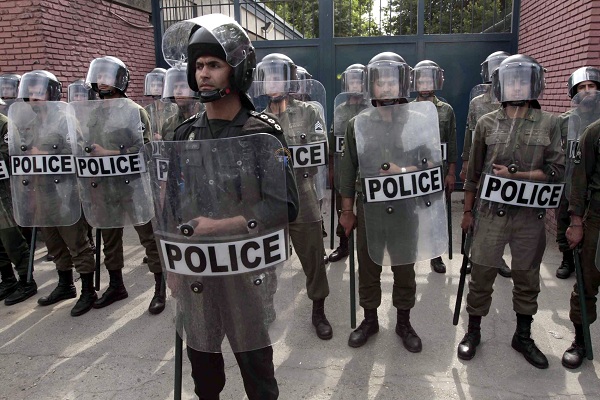The recent events in Egypt have, among other things, been inspiring, terrifying and remarkable.
But though the political situation is obviously the story here, this hasn’t stopped many from commenting on the role the internet and social media have played.
Of course, we also know that Egypt very successfully – and very scarily – almost shut down their entire internet.
The response from commentators around the web has been predictable: that censorship and repression are wrong and that no country should ever engage in such practices. It has been accompanied by calls for international companies to resist such repressive governments.
But neither option will ever stand up to the realities of our modern world. No, the dream of a web committed to openness and democracy is one we must reconsider. And worse, we may not be able to fix what’s wrong.
Why We Think Our Web is Safe
Currently, the web relies on two central ideals to keep it a free and open and place.
The first is that a great deal of the technology that underpins the web is owned and operated in countries that have a long, established history of democratically protected free speech and a free press. Because those rules form the legal basis of those countries’ day-to-day workings, they guarantee at least part of the web will remain open.
Google or Amazon or Twitter will never shut down their own servers because they are American companies, and America and its economy rely on the free spread of information – and indeed, many legal protections exist to make sure this doesn’t happen.
The second concept is the ‘free market’ argument. It is in the best interest of corporations to keep information flowing because the largest ones – Google, Facebook etc. – make money on the flow of that information, regardless of what its content is. To shut down the flow of information would be to attack their own businesses, so they clearly wouldn’t.
So you have two ideals – legal and economic – that provide a model to the world of ‘how the web should work’ and keep it a place for the free exchange of ideas and media.
Why The Democratic Web is Broken
But here’s the problem: at moments of historical change, neither of those things is a guarantee for keeping the web open and free.
First, countries always act in their own interests. When push comes to shove, any state will work to protect what it must to ensure its power and its survival.
The most recent example of this is the American government’s moves to shut down the spread of information from Wikileaks, whether cracking down on dissident hackers or pushing companies to give up information on its users.
The point is that when an event or happening actually threatens the state, the state revokes democratic ideals and replaces them with authoritarian ones. Every country – even those famed for democracy – have these ideals, whether the Patriot Act in the US, the Emergency Powers Act in the UK or the War Measures Act in Canada. A free and open web is only a legal right when things are okay. But true moments of historical upheaval always challenge law and existing structure; it’s just how it goes. And when things get messy, those in power, both political and corporate, will work to preserve their own.
Secondly, corporations can’t be trusted to maintain a free web because a corporation is a legal entity: it has to abide by the law. There is no guarantee the companies that dominate the web won’t be made to shut off parts of their services because they must work within a specific legal structure. Can you imagine Google or Apple or Facebook saying to the US government “no, I’m sorry, we are not going to comply with your legal request to give up information?”. It’s inconceivable, right?
At the end of the day, the web is only free when it works as envisioned by those who lord over it. But if the web as a technology is a truly revolutionary development – one that is more about empowerment than streaming media – then it will inevitably cause or contribute to political upheaval. And at that point, you have a clash: between a technology that spreads information, and people in power who need to prevent that spread of data to stay in power.
Why We Might Be Stuck With It
But if that’s the case, surely there are solutions?
If the problem is repressive regimes, maybe we could form something like ‘a UN’ of the internet: a stateless, trans-national organization who all countries would have over control of the internet to, and whose purpose it would be to keep the web – the new place of public discourse – open and free?
I’m not so sure, in large part because anyone entrusted to oversee the web would: a) be beholden to someone; b) always have their own agenda.
Who would fund this new internet-governing body? What would the U.S. say if Iran were on board? What would China do to exert its own power? More to the point, why would any represssive regime agree to it, thereby giving up their power to control the flow of information?
No, what’s clear is the web, just as other media before it, beholden to the financial and political powers that allow it to exist. Additionally, there is no neutral body that could administer the web because such a proposition is exceedingly expensive and politically untenable. It just can’t happen.
And because the way the web is set up so that ISPs connect to the world through specific channels – as described in this Telegraph piece here – countries can and will shut down the web when they need to, simply because they can.
What’s worse is that, unlike covert printing presses or pirate radio, the web is at its heart a centralized network. As wide-ranging and impossible it is to control under normal circumstances, under extreme ones – like the incredible happenings in Egypt – it can be shut down.
So it’s time to temper our rhetoric about the web being a free and democratic place. It is, instead, just like TV, radio and print a net benefit with limits related to who owns it and who controls it.




GIPHY App Key not set. Please check settings
3 Comments